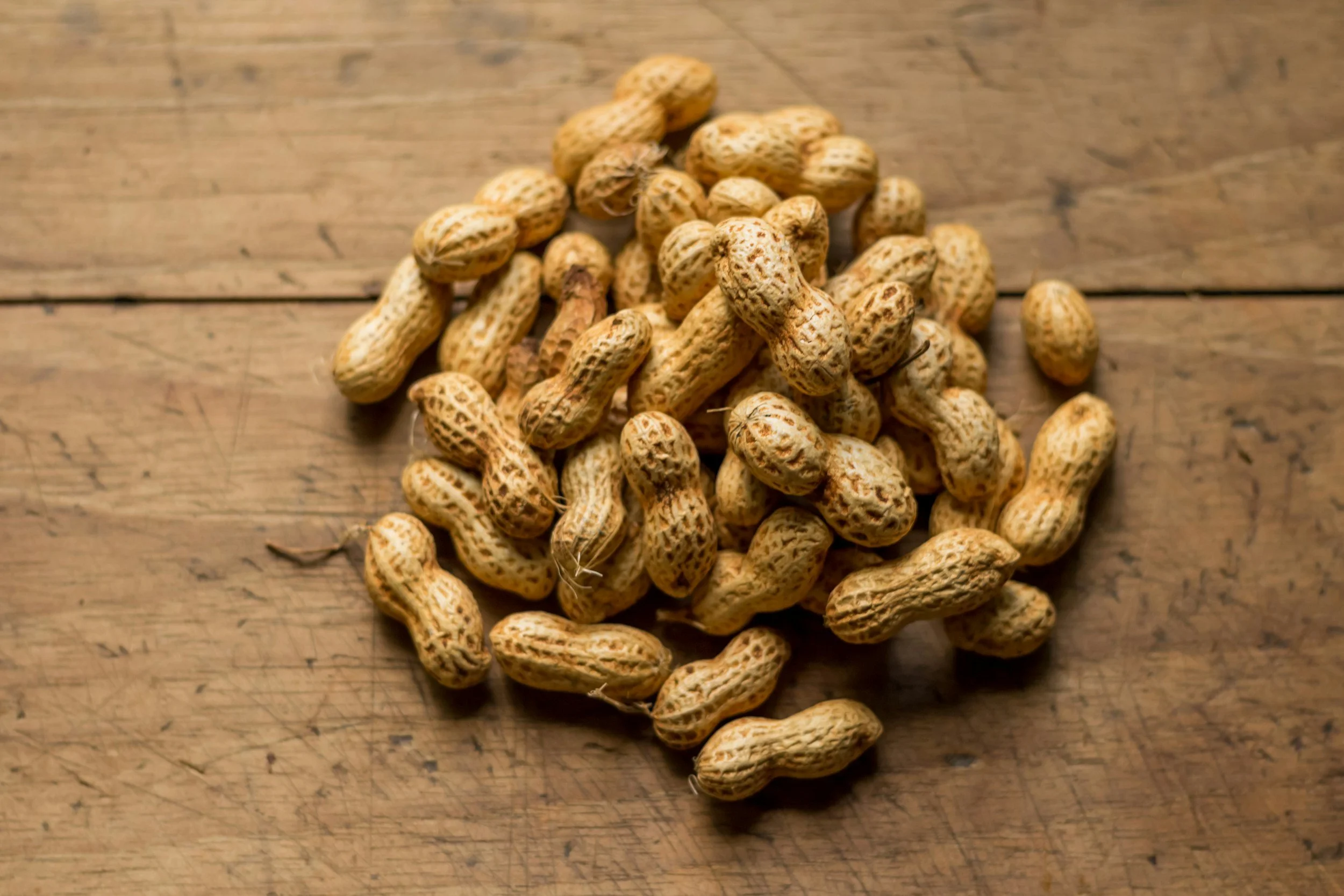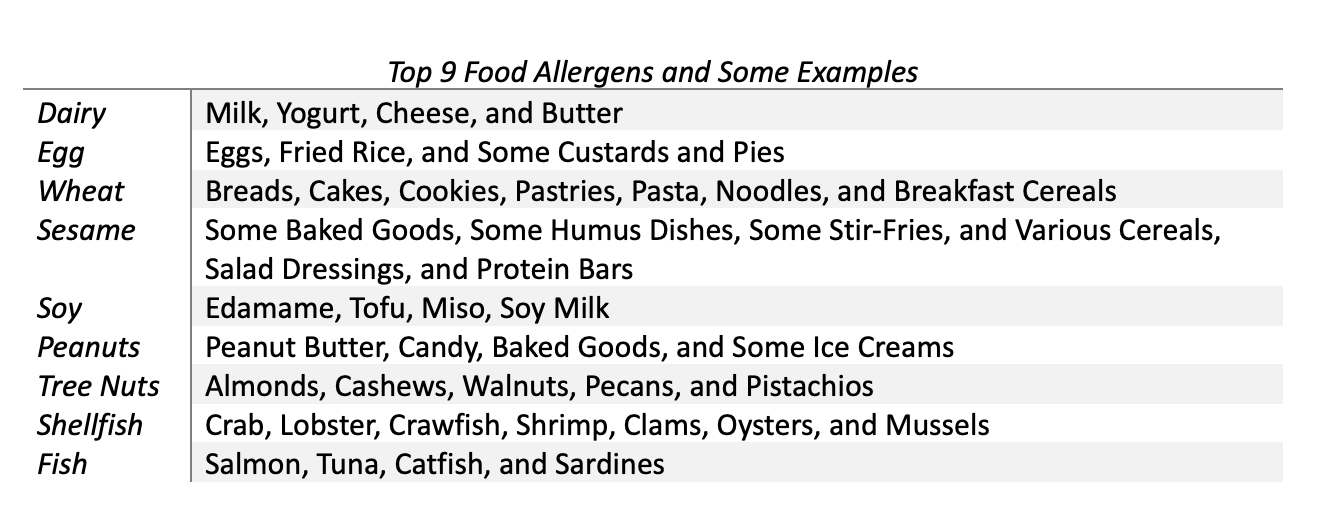Food Allergies: How Early Introduction Helps Prevent Them
Food guidelines can be tricky to navigate, especially if you have kids who started solids before 2017 and have kids who are starting solids after 2017. For years (pre-2017), doctors advised parents to delay introducing foods like peanuts, eggs, or milk to infants starting solids in hopes of preventing food allergies. But research over the past decade has turned that advice on its head.
Immune Response Breakdown
Before we discuss the new guidelines, let’s talk about anaphylaxis in children. Immunoglobulin-E (IgE)-mediated food allergy is the most common cause of anaphylactic stock in children. IgE is an antibody made by the immune system that, under normal circumstances, helps protect you from bacteria and viruses. However, in people with allergies, the body produces IgE in response to what should be harmless foods, such as peanuts, milk, and/or eggs.
There are three steps to an IgE-mediated food allergy: sensitization (the setup), re-exposure (the reaction), and symptoms (the result).
Sensitization (the setup) begins the first time you eat a food, say, peanuts. Your immune system mistakenly thinks it’s dangerous and makes IgE antibodies that bind to peanut proteins. The IgE antibodies bind to immune cells found in the skin, gut, and airways.
Next is the reaction or re-exposure. The next time you eat, in our example, peanuts, the peanut proteins bind to the IgE sitting on the cells which triggers the cells to burst open and release chemicals, especially histamine – hence the name antihistamines to treat allergies.
Finally, there’s the result, symptoms. Histamine and other chemicals released by the cells cause things like hives or a skin rash, swelling of the lips or eyelids, vomiting or diarrhea, coughing or wheezing, trouble breathing (in severe cases), or in the most severe and life-threatening case, closing of the airway as a result of anaphylaxis.
It is important to remember timing when navigating possible allergies. IgE-mediated food allergies cause immediate reactions, usually within minutes but up to two hours after eating the food. Other non-IgE-mediated allergies, typically, cause a delayed reaction that often involves the gut, think diarrhea the next day or an upset stomach. It is also important to remember that, although rare, it is still possible for young children and infants to have severe symptoms, such as anaphylaxis, upon first exposure, so be sure to monitor your child carefully when introducing new allergens.
New Research, New Findings, New Guidelines
A long-term study that followed hundreds of infants (Joseph et al., 2011) found that babies who started solids before 4 months of age were less likely to show sensitization to peanuts and, maybe (more studies needed) eggs, especially when there was a parental history of allergy or asthma - suggesting that early exposure may reduce the prevalence of peanut and maybe egg allergies.
Then, in 2019, Burgess et al. reviewed many different studies and several randomized controlled trials on the timing of solids and allergen introduction (excluding milk) in children aged 4 – 12 months. They found an association between later introduction (older than 4 months) and increased sensitization, meaning a greater likelihood of allergy. When analyzing the randomized controlled trials, they found that introducing egg around 4-6 months reduced egg allergies and sensitization, and introducing peanuts around 4-11 months reduced peanut allergies.
Years later, new national guidelines from the American Academy of Pediatrics (AAP) put this evidence into practice. The 2025 AAP study looked at food allergy rates across millions of U.S. children and found that, after doctors (post-2017) began encouraging early allergen introduction (around 4–6 months), the number of children diagnosed with peanut and other food allergies started to go down.
In other words, early exposure may help prevent allergies, and real-world data across the country support that claim.
What This Means for Parents
Start solids around 4-6 months, when your baby shows signs of readiness (e.g., good head control, interest in food, sits with minimal support, and brings things to their mouths). Your pediatrician often gives the green light for this.
Include small amounts of allergenic foods early, like thinned peanut butter, cooked (think scrambled) eggs, or yogurt, once your baby has safely started other solids. It’s perfectly acceptable and normal to keep Zyrtec or Benadryl on hand at home in case of a reaction - talk to your pediatrician about the dosage.
Keep offering allergenic foods regularly after introduction because repeated exposure helps maintain tolerance. Once introduced, you want to keep it in the rotation.
Talk to your pediatrician first if your baby has severe eczema, an existing food allergy, or a strong family history of allergies; some babies may need testing or supervised introduction.
Watch for symptoms (rash, vomiting, swelling, trouble breathing) and seek care immediately if they occur.
Remember that severe symptoms are uncommon, although possible, at first exposure.
Takeaway and TLDR
Introducing allergenic foods early and often can help prevent food allergies later. Early exposure, done safely and guided by your pediatrician, helps your baby’s immune system learn that these foods, peanuts, milk, egg, etc., are safe which protects them from developing future allergies.
References
Stanislaw J. Gabryszewski, Jesse Dudley, Jennifer A. Faerber, Robert W. Grundmeier, Alexander G. Fiks, Jonathan M. Spergel, David A. Hill; Guidelines for Early Food Introduction and Patterns of Food Allergy. Pediatrics 2025; e2024070516. 10.1542/peds.2024-070516
Joseph CL, Ownby DR, Havstad SL, Woodcroft KJ, Wegienka G, MacKechnie H, Zoratti E, Peterson EL, Johnson CC. Early complementary feeding and risk of food sensitization in a birth cohort. J Allergy Clin Immunol. 2011 May;127(5):1203-10.e5. doi: 10.1016/j.jaci.2011.02.018. Epub 2011 Apr 1. PMID: 21458850; PMCID: PMC3632345.
Burgess JA, Dharmage SC, Allen K, Koplin J, Garcia-Larsen V, Boyle R, Waidyatillake N, Lodge CJ. Age at introduction to complementary solid food and food allergy and sensitization: A systematic review and meta-analysis. Clin Exp Allergy. 2019 Jun;49(6):754-769. doi: 10.1111/cea.13383. Epub 2019 Apr 3. PMID: 30861244.








